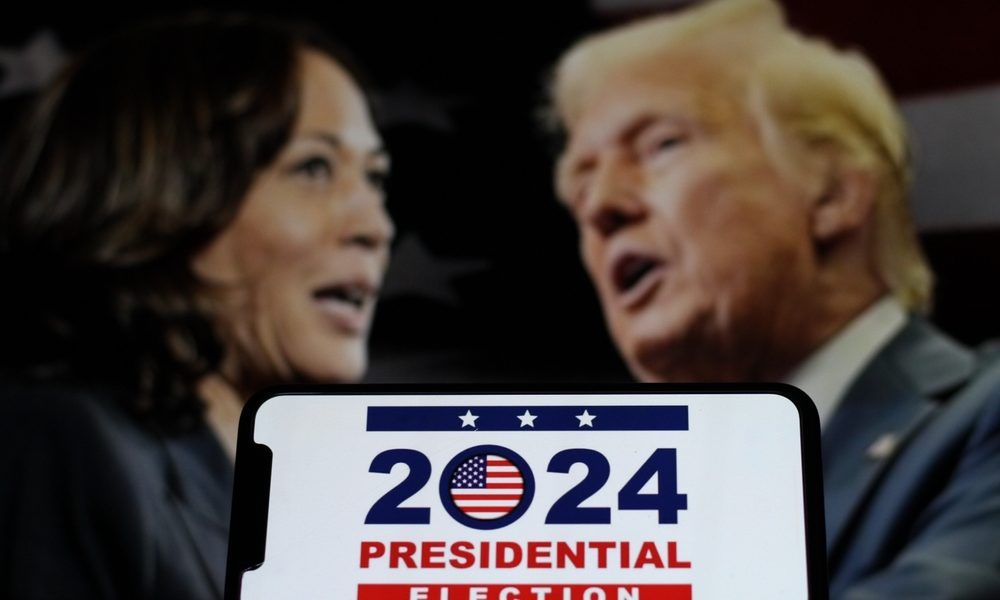The world of politics is very contentious these days, especially in the heat of a presidential campaign season. However, in a rare case, both parties agree on one thing: eliminating taxes on tip income. Actually, they seem to have found common ground in taxing Social Security benefits and building a border wall, at least that is what I read.
Donald Trump was the first to propose the idea of eliminating income tax on tips. He was in Las Vegas courting, as everyone does, the Culinary Union. He said the idea came from a waitress. “The United States is home to an estimated 5.5 million workers whose livelihoods depend on tip income and they’re working with their hands and their talent, and they’re skilled,” Trump said.
Several months later, the newly minted presidential candidate Kamala Harris, while speaking in Las Vegas to the same audience, echoed Trump. “It is my promise to everyone here that when I’m president, we’ll continue to fight for working families, including to raise the minimum wage and eliminate taxes on tips for service and hospitality workers.” Her campaign said her tip-tax exemption would include an income limit.
Nevada is a logical place to focus on tips. In the Silver State, 17 percent of workers receive tips, according to the Center for Business and Economic Research at the University of Nevada Las Vegas. The national average is 2.5 percent; nationally, approximately 6 million workers receive tips. Nevada is also known as the Battle Born State, and it is currently a battleground. Until recently, Trump seemed to have firm control. But since Harris replaced Biden, the outcome is no longer so certain. Trump has been back to Las Vegas three times to repeat his message and court the Culinary Union and as we get closer to the election, we can expect more visits by both candidates. My grandfather would be stunned. In his time, presidents and presidential candidates never came to Nevada. Now, some major politician is here frequently and the service workers are always on the radar.
According to the critics, the no-tax-on-tips plan makes for great speeches, but bad public policy. Political observers say politicians should treat the tax code as a tool for social policy and political favoritism. The Wall Street Journal took that stance. The Journal suggested it might cost as much as $15 billion a year in lost tax revenue. There are also suggestions that other income may be reclassified as tip income as a result. One jaded commentor thought lawyers might begin adding an additional charge; the tip would, of course, be tax free to the lawyer. And then there is a great deal of discussion about the definition of a tip and whether company-imposed service charges are tips.
The one big obstacle to the plan is, not surprisingly, the Internal Revenue Service. About 50 years ago, the IRS decided it was being cheated out of the significant revenue source that tips represent. The average tip earners did not report tips and if they did, they were drastically underreported. “It is my money, a gift for a service rendered,” was commonly heard. The IRS was not impressed; instead, the agency set out on a long-term plan to capture tips. Undercover agents went into the field, watched carefully, and took notes. The IRS also paid informers. And then, of course, there was the granddaddy of all tactics, the audit.
The Grand Inquisition ground on year after year. But each year, the IRS had better data. No one in the country understood tipping better than those IRS agents. They knew what bartenders, waitresses, cabdrivers, blackjack dealers, bellmen, car parkers, beauticians, and just about every other tip-earning profession received in cash. They knew the difference between a dealer on the Strip and a dealer on a riverboat on the Mississippi River. At some point, the agency began offering tip agreements to groups of workers, like table-game dealers. Each agreement reflected the IRS’s knowledge of exactly what people were earning. There was not much wiggle room — although in the early days of IRS tip agreements, there were still plenty of wigglers.
The IRS plan was masterful and successful. Earlier tensions had run very high, people were very secretive, and there were even death threats. In the end, they all surrendered to the tax man. In 2024, the issue is mostly settled. Workers report their tips to their employer and pay taxes and Social Security on the amount earned. Not that the workers like it, but it is excepted. The IRS likes it very much, probably enough to fight in Congress to keep the tax on tips.
It is easy for a politician to make a “promise,” it is quite another thing to deliver on the promise. A president needs Congress to accept and validate the administration’s policies, never an easy proposition. This idea has legs and a group of people who would like it very much, but the total pool is less the 7 million workers. The workers will lobby, the administration will lobby, but the big gun in the lobby section will be the Internal Revenue Service. The agency has something to fight for and it does not lose often; the country needs the money the IRS collects. I would not rate the chances of a tax-free-tip world very highly.



